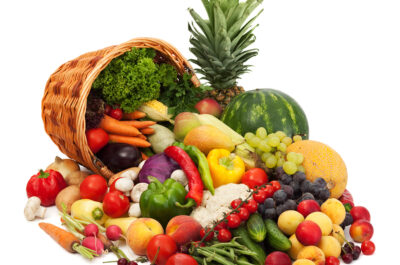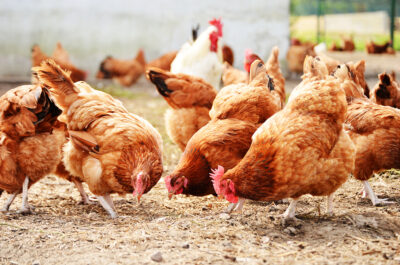The New England Journal of Medicine recently released findings called Myths, Presumptions and Facts about Obesity. The goal was to review some common myths about obesity and have doctors and nutritionists examined them for factual evidence. Seven myths are addressed in this article.
#1 Small sustained changes in energy intake (calories in) or expenditure (calories out) will produce large, long-term weight changes. The 3,500-calorie rule “predicts that a person who increases daily energy expenditure by 100 calories by walking 1 mile per day” will lose 50 pounds over five years. The true weight loss is only about 10 pounds if calorie intake doesn’t increase, assuming no compensatory increase in caloric intake, because changes in mass alter the energy requirements of the body.
#2: Weight Loss Goals Must Be Realistic. Several studies have shown that more ambitious goals are sometimes associated with better weight-loss outcomes.
#3: Losing Weight Rapidly Will Not Stick. There was no significant difference between the very-low-energy diets and low-energy diets with respect to weight loss at the end of long-term follow-up. The research suggests that recommendation to lose weight more slowly might interfere with the ultimate success of weight-loss efforts.
#4: You have to be ready to lose weight otherwise it wont work. Readiness does not predict the magnitude of weight loss or treatment adherence among persons who sign up for behavioral programs or who undergo obesity surgery. People who are voluntarily choosing to enter weight-loss programs are at least minimally ready to engage in the behaviors required to lose weight otherwise why would they be there.
#5: Physical-education classes help children lose weight. Physical education, as typically provided, has not been shown to reduce or prevent obesity. Studies showed that the effects on body-mass index (BMI) were inconsistent across sexes and age groups. The researchers suggested more studies need to be conducted in this area.
#6: Breast-feeding protects against obesity. The researchers concluded this topic by stating, “Although breast-feeding does not have important antiobesity effects in children, it has other important potential benefits for the infant and mother and should therefore be encouraged.”
#7 Sex can burn between 100 to 300 calories for each partner. Reality is there is no clear definition of how many calories will be used because of each person’s weight, the amount of time spent, and how much energy is used. The estimate is that it can be as little as 21 calories that are burned up. The researchers did note it might be better as a stress relief.
The study also examined some common presumptions about weight loss:
- Breakfast– Regularly eating (versus skipping) breakfast is protective against obesity. The findings in one study suggested that the effect on weight loss of being assigned to eat or skip breakfast was dependent on baseline breakfast habits. What is important is not to skip breakfast but to make sure what you are eating is healthy.
- Early childhood is the period in which we learn exercise and eating habits that influence our weight throughout life. Studies show a person’s genetic makeup may have more influence over your body type (genetic makeup) than your early learning habits.
- Eating more fruits and vegetables will result in weight loss or less weight gain, regardless of whether any other changes to one’s behavior or environment are made. You cannot just eat fruits and vegetable and expect weight loss. You have to change your eating behavior for this to occur.
- Weight cycling (i.e., yo-yo dieting) is associated with increased mortality. The researchers were not able to consistently support this with evidence based research.
- Snacking contributes to weight gain and obesity. Observational studies have not shown a consistent association between snacking and obesity or increased BMI.
- The environment we live in, in terms of sidewalk and park availability, influences the incidence or prevalence of obesity. The research showed nothing where this conclusion could consistently be drawn.[1]
What you should do if you are going to lose weight is to start with a plan. There are many structured plans available and your doctor can suggest a plan that can work for you. Weight Watchers now has online plans available for people who do not want to go to a meeting and Calorie King offers an online web site that is also excellent. Our purpose in writing this is not to endorse a site but to suggest some. In addition we did not want to leave this article without some suggestions that can help you lose weight. While these are not completely exhaustive they are easy to implement and can help you get started.
Get plenty of sleep– “When you don’t get enough sleep, it drives leptin levels down, which means you don’t feel as satisfied after you eat. Lack of sleep also causes ghrelin levels to rise, which means your appetite is stimulated, so you want more food.” The two combined can set the stage for weight gain. [2]
Exercise– Consider the following fitness findings:
- A study published by the American Journal of Sports Medicine in 2006 showed that short walks after dinner were more effective than long exercise sessions in reducing the amount of fat and triglyceride levels in the bloodstream after a hearty meal.
- Research published in the Journal of Epidemiology and Community Health showed that short bouts of exercise helped lower blood pressure as well as shave inches off the hips and waistline.
- In a study published in Preventive Medicine in 2006, researchers found that multiple workout sessions as short as 6 minutes apiece could help sedentary adults reach fitness goals similar to those achieved by working out for 30 minutes at a time.
- In a finding published in the journal Psychopharmacology, doctors found that short bursts of exercise could help reduce the craving for cigarettes and help people quit smoking.[3]
Carbohydrates– Having too many calories from carbohydrates (and from fat, and from protein) leads to weight gain. While eliminating carbohydrates from cakes, cookies, and candy is a good thing you don’t want to eliminate fruit from your diet. What is important is to know how to change up what you are eating such as brown rice for white rice, whole grain bread for white bread, and a sweet potato instead of a traditional Irish potato. You cannot just concentrate on just removing carbohydrates from your diet. Carbohydrate is the body’s main fuel source and should make up the majority of your daily energy intake, mainly in the form of whole grains, vegetables, legumes and some fruit.
Factors that influence your recommended carbohydrate intake include:
- Body weight: More specifically, the amount of muscle. The greater your muscle mass, the more carbohydrates you need.
- Gender: Males generally require more carbohydrates because of their greater muscle mass.
- Diabetes: Although most people with diabetes can include a moderate amount of carbohydrates in their diet, individual health will affect particular dietary needs.
- Sports: Athletes tend to burn more carbohydrates and therefore need more in their diets.[5]
Eat Fresh Fruits and Vegetables Daily– Fruits and vegetables are good for weight loss. For weight loss, you want to keep your calorie count low. Some fruits around 100 calories are: a medium-sized apple, 72 calories; medium-sized banana, 105; 1 cup blueberries, 83; and 1 cup grapes, 100.
Vegetables tend to be lower in calories than fruit. Some low-calorie vegetables around 100 calories or less are: 1 cup steamed green beans, 44 calories; 1 cup carrots, 45; 1 cup broccoli, 30; and 1 cup bell peppers, 30.[6] Vegetables tend to be lower in calories than fruit; thus substituting more vegetables than fruit for foods of higher energy density can be helpful in a weight management plan. CDC notes: “To lose weight, people must eat fewer calories than they expend. Adding fruits and vegetables to an existing eating plan that supplies sufficient calories or has more calories than needed can cause the person to gain weight.” [7] You want to add them but at the same time you cannot over eat just because you added fruits and vegetables to your diet. The guidelines recommend two cups of fruit and two and a half cups of vegetables per day for a 2000 calorie intake.
Drink Water– It is very difficult for the body to differentiate between hunger and thrust. Drinking two cups of water before meals can actually help you keep weight off. Just two 8-ounce glasses of water, taken before meals, enables people to shed pounds. [4]
Eat Breakfast– The Journal of the American Diet Association reported the following,” Breakfast eaters generally consumed more daily calories yet were less likely to be overweight. We advocate consumption of a healthful breakfast on a daily basis consisting of a variety of foods, especially high-fiber and nutrient-rich whole grains, fruits, and dairy products.” While it cannot guarantee weight loss it can help you by supplying you with the energy your body needs to get through the day. The American Society of Nutritional Sciences’ Journal of Nutrition, researchers found that calories consumed early-on in the day were more satiating than the same amount of calories eaten later in the day; and this led to lower calorie consumption overall.[8]
[1] K. Casazza and Others. Myths Presumptions and Facts About Obesity. New England Journal Of Medicine. Jan. 31, 2013. N Engl J Med 2013; 368:446-454January 31, 2013DOI: 10.1056/NEJMsa1208051
[2] Bouchez, Colette “The Dream Diet; Losing Weight While You Sleep”, Web MD, http://www.webmd.com/diet/features/lose-weight-while-sleeping
[3] Bouchez, Colette “How Much Exercise Do You Really Need.” Web MD, http://www.webmd.com/fitness-exercise/features/getting-enough-exercise
[4] Clinical Trail Confirms Effectiveness of Simple Appetite Control Method, Aug, 23, 2010, ACS Network http://portal.acs.org/portal/acs/corg/content?_nfpb=true&_pageLabel=PP_ARTICLEMAIN&node_id=222&content_id=CNBP_025391&use_sec=true&sec_url_var=region1&__uuid=647bbb4a-ea03-4c53-866e-9cf6c33d5b77
[5] How Much Carbohydrate Do I Need? Calorie King. http://www.calorieking.com/learnabouts/How-Much-Carbohydrate-Do-I-Need_MTAxNQ.html
[6] Bodin, Jennifer, The Best Fruits and Vegetables for Weight Loss. Jun. 14, 2011 LIVESTRONG.COM http://www.livestrong.com/article/307393-the-best-fruits-vegtables-for-weight-loss/
[7] Can Eating Fruits and Vegetables Help People to Manage Their Weight? CDC. http://www.cdc.gov/nccdphp/dnpa/nutrition/pdf/rtp_practitioner_10_07.pdf
[8] Why Is Breakfast So Important, Calorie King. http://www.calorieking.com/learnabouts/Why-Is-Breakfast-So-Important_OTI5.html


